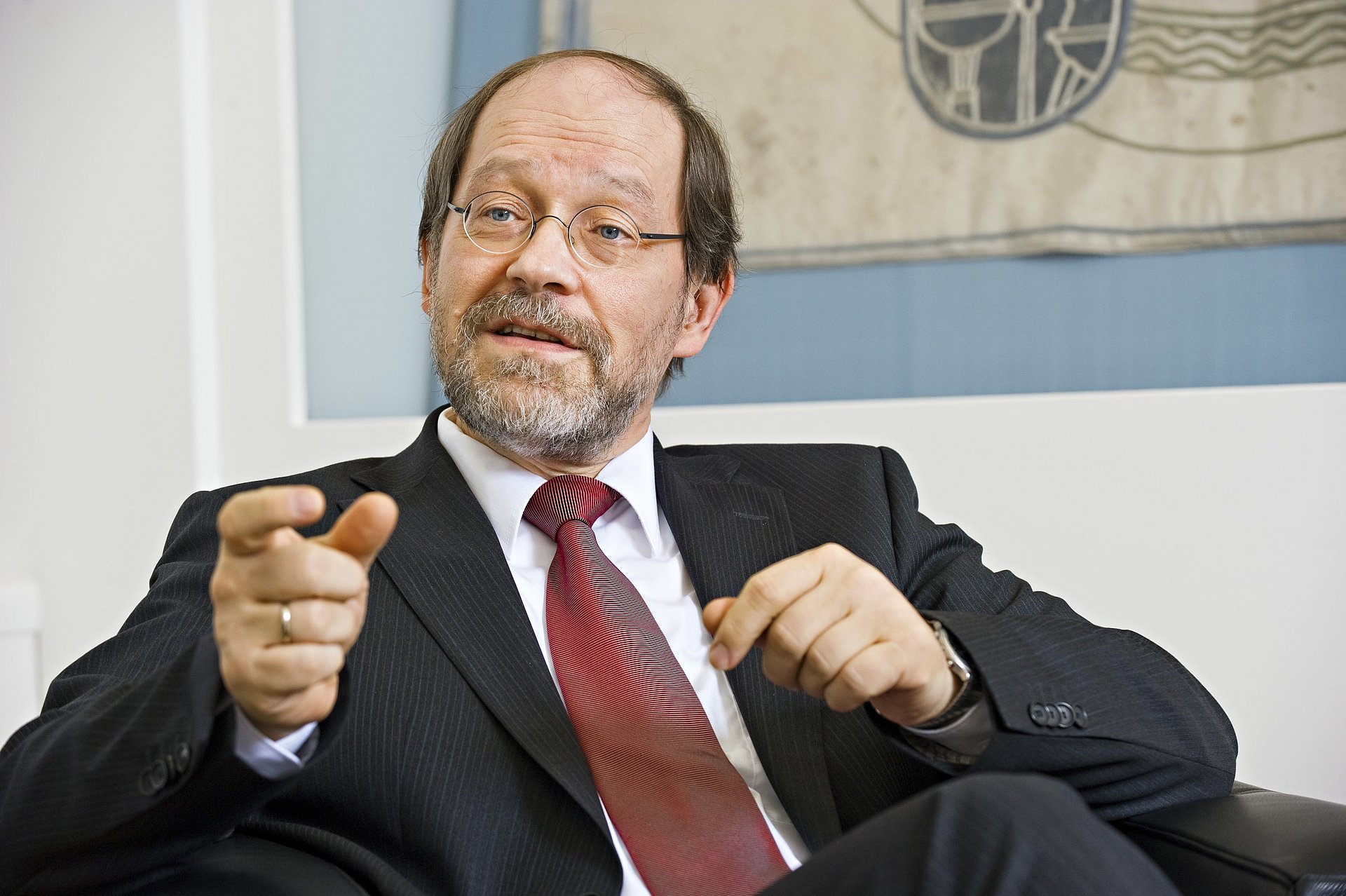From Bachelor to Master:
"Aptitude is the Decisive Factor"

Which kinds of master’s programs are available at TUM? Which prerequisites must be fulfilled?
Peter Gritzmann: There are different kinds of master’s programs at TUM depending on whether the discipline is "consecutive" to a bachelor’s program or is oriented as "continuing education." The normal period is two to four semesters. The prerequisite for a consecutive master’s degree is usually a first academic degree encompassing a minimum of 6 semesters and an aptitude test. The prerequisite for a continuing master’s degree is a qualifying professional degree, a successful aptitude test and generally at least one year of employment experience.
What problems exist for the transition from bachelor’s to master’s?
Peter Gritzmann: TUM tries to structure the transition from bachelor’s to master’s program as flexibly as possible. It is problematic that the end date of a bachelor's degree is not fixed in time (unlike the start date) so that a seamless transition for enrollment in a master's degree is difficult regarding key-date provisions. This has several consequences for the study itself, but also for student loans, insurance, student accommodation, etc.
How does the transition from bachelor’s to master’s work in practice?
Peter Gritzmann: At TUM, there are different combinations of bachelor’s and master’s degree programs. Depending on the degree program, these include: early enrollment in the master's degree; an advance decision for acceptance in the master's program with enrollment after the bachelor's exam; and the possibility of starting master’s modules before the end of the bachelor's program.
What exactly does that mean?
Peter Gritzmann: The exact details for each program are specified in the respective examination regulations. Roughly speaking, the situation is as follows: In the first case, students who had gained a specified number of ECTS credits can enroll in a master program before completing their bachelor’s. They must, however, catch up on the missing parts of their bachelor's degree within two semesters. During this time, they are enrolled simultaneously in the undergraduate and master's programs. In the second case, the aptitude test is administered before the end of the bachelor's degree on the basis of program achievements as specified in the examination regulations. Enrollment in the master's program is dependent, however, on the bachelor's degree first being completed. With the third variant, the student can attend master’s seminars in the final semester of their bachelor’s degree and write exams thereon. This variant is available for master’s degree programs with a summer or winter start to studies.
Can every bachelor’s graduate at TUM undertake a master’s there?
Peter Gritzmann: There are no rigid transfer quotas for bachelor’s degrees to master’s programs. The deciding factor in the acceptance to a master’s program is aptitude.
Do students have to specially apply for a master’s program? How does one proceed?
Peter Gritzmann: A master's degree is a totally independent course so an application is therefore required. The specific requirements vary according to program. One should promptly inform themselves.
What does the aptitude test look like?
Peter Gritzmann: The aptitude test is dependent on the actual master’s program. At the first stage, through a point system, we evaluate bachelor’s degree performance, other technical fundamentals, motivational essays or recommendation letters. According to points scored, either a final decision or an invitation to a selection interview or an exam will follow.
How do I find out which master’s program suits my bachelor’s degree?
Peter Gritzmann: TUM offers numerous consulting opportunities, online or in person. The TUM Student Counseling Service maintains an excellent database that presents numerous possible study combinations. The Student Counseling Service and special course counselors at participating institutions are also available for advice.
Are there general application deadlines?
Peter Gritzmann: Application deadlines are generally May 31st for the following winter semester, December 31st for the summer semester. Exceptions are made in some cases. The deadline for applications for the summer semester is November 30th for some individual programs.
Where can students and/or interested persons find specific information?
Peter Gritzmann: The central Student Counseling Service and all course counselors will happily inform you about the access to and structure of the aptitude test. Of course, information on special examinations and study regulations is also available electronically. There will also be an upcoming MasterTUM information day.
(Interview: Verena Meinecke)